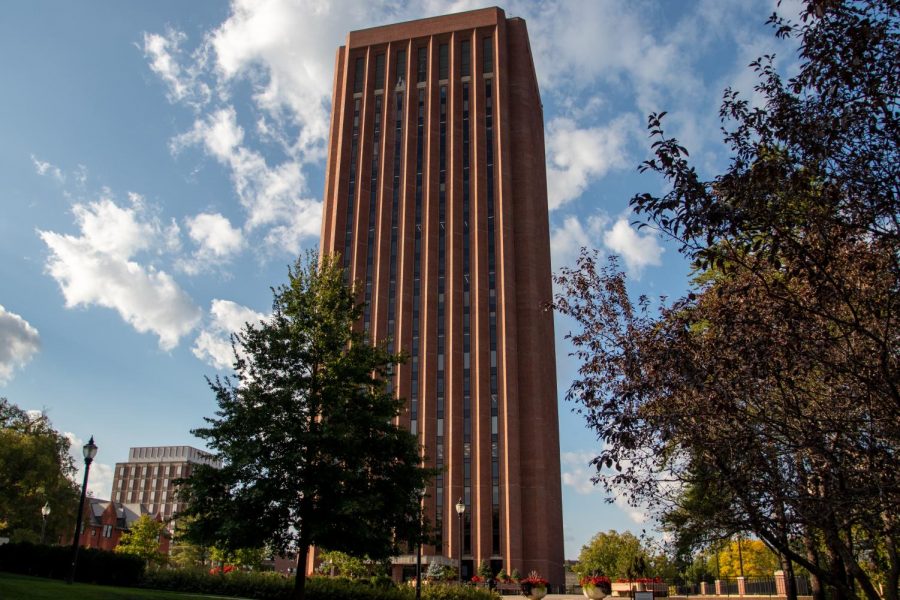While many, including myself, were relieved to hear that voters chose to elect Joe Biden to be our the next president of the United States rather than giving President Donald Trump a second term in office, there is no guarantee that Trump will honor the results of this election. In spite of all the major news networks projecting a Biden victory, and the various American allies who have already congratulated President-elect Biden, Trump has refused to concede, citing baseless claims of voter fraud and other voting irregularities.
Most of Trump’s claims have been laughed out of court, but that does not mean that these efforts are benign. Not only do these claims undermine people’s trust in the most fundamental process of our democracy – voting – they also create an atmosphere of doubt amongst Trump’s base. This could make it easier for Trump to declare the election results invalid and remain president despite having lost. Scenarios like this are, admittedly, not the most likely outcomes. There are very few, if any, legal paths for the president to overturn the election results, and any extralegal effort, such as a coup, would still require Trump to muster a great deal of support. But we should never underestimate the ability of this particular president to ignore long-standing democratic norms. We all hope that America’s institutions will ultimately prove strong enough to withstand these petty attacks from Trump, but 2020 has made it clear that life can be woefully unpredictable.
Trump has sought to undermine the election in a number of ways. The Transition Integrity Project organized a bipartisan group of about 100 experts on presidential campaigns last year to simulate some potential post-election outcomes so that Americans could prepare for the worst case scenarios. The participants took sides, acting either as Trump’s team or Biden’s, and gamed out how they would act given different scenarios. One of the co-founders of the project, Rosa Brooks, was recently on the New York Times podcast, “The Argument,” where she explained how accurate the simulations appear to be now that the election is over. Brooks said that the current circumstances still make it possible for a number of “nightmare scenarios” to materialize. Brooks said that she was initially relieved by the announcement on Saturday that Biden had been projected the winner, but that the actions that followed from the president and a number of GOP officials showed more ominous signs. For one, top GOP officials like Sen. Mitch McConnell have refused to acknowledge Biden’s victory since Trump is still contesting the election. She also pointed to “a surprisingly high, and depressingly high,” number of Republican candidates who, are contesting their own elections based on unsubstantiated claims of fraud. Brooks explained that the flurry of lawsuits Trump has filed in an attempt to stop vote counting in key states are predictably failing, but that these cases are more for promoting the narrative that “they wouldn’t be litigating if there wasn’t some real issue.”
How successful these efforts will be and what forms they may take in the future are still uncertain. Trump’s ability to overturn the results in court are very unlikely, since he would need to flip the results in multiple states, as Biden won the Electoral College by 74 votes (never mind not having any actual evidence of fraud). For that same reason, Republican efforts to encourage states to send alternative slates of electors are also likely to fail. Such efforts are also legally questionable for their own reasons, according to legal experts. Brooks does identify two possible scenarios to be worried about. One scenario would be if Republicans are able to convince two or more state legislatures to send alternate slates of electors. Another scenario could occur if people take to the streets and protest Trump’s refusal to concede and violence breaks out. Trump could then use the violence as an excuse to use forces including the military to “restore order.” This would be one of the most overt and scary outcomes, and that is also why it isn’t very likely. But the fact that this is even plausible should, by itself, be discomforting.
President Trump and the Republican Party have made it no secret over the past four years that their commitment to the principles of democracy is secondary to their political agenda. They may not have the means to overturn the 2020 election, but their efforts to undermine the election, in spite of this, prove that if they could, they would. Even if fears surrounding the peaceful transition of power are ultimately overblown, we still have to grapple with the fact that key members of the party that represents about half of the electorate have openly undermined the most essential process of a working democracy: a free and fair election. Trump may end up leaving office, but his disrespect for democratic institutions and traditions will likely be here to stay, at least for a time. Whatever happens, it is crucial that we remain vigilant against these attacks on the rule of law.
Benjamin Schnurr can be reached at [email protected]




















Nan • Jan 9, 2021 at 10:04 am
What do you mean. I’m not understanding your position. explain !!??
Mary Hilbert • Nov 25, 2020 at 9:28 pm
Ben, again you cut right to the heart of the matter. Thank you for another well-written ( I proof reports all day in my job and wouldn’t change a thing) and thoughtful piece. I personally will never forgive the Republicans who stood by and let this happen.